Review for One-Eyed Jacks
Introduction
Talk about coincidence and serendipity! There I was hovering around my Blu-ray collection, and scouring pages of e-tailer listings, as I was in the mood for a Western. There is something just so fitting about seeing a grand elegiac Western in high definition, the added clarity and depth just so suited to the open vistas and operatic landscapes of the classic genre. What was giving me pause was that I was torn between films that I had seen before, in some cases knew backwards. That’s when the Arrow review disc solicitations appeared, with a Western I had never seen before among them, One-Eyed Jacks.
One-Eyed Jacks is a Western starring Marlon Brando, who despite first coming to prominence during the fifties; the height of the Western era, is an actor that I’ve never associated with the genre. However One-Eyed Jacks is a film that’s unique in one other respect, it is the only film that Marlon Brando actually directed, after Stanley Kubrick left the project early on.
A bank robbery in Mexico, 1880 goes well... at first. Partners Rio and ‘Dad’ Longworth think they have got away scot free, but it turns out that the authorities are on their trail, and pretty soon have them surrounded, with just one lame horse between them. Rio tells Dad that he’ll hold them off while Dad rides to a nearby homestead and comes back with some fresh horses. Only Dad gets to the homestead, weighs the saddlebags full of gold on his horse and keeps on riding.
Five years later, Rio escapes from a Mexican prison with just one thing on his mind, revenge. But Dad Longworth is no longer in Mexico. One man, Bob Amory offers to tell him where Longworth is, if Rio will join him in a bank job across the border. It’s a convenient job too, as the bank is in Monterey, California, and the sheriff of that town in none other than Dad Longworth, who has become respectable, settled down, and even got himself a family.
Picture
One-Eyed Jacks received a 4k restoration for its Blu-ray release, and it has worked a treat on this film. The original aspect ratio of 1.85:1 is preserved for this disc, presented in 1080p resolution. The image is clear, sharp and stable throughout, with a natural level of film grain. Signs of print damage and age are wholly absent, while detail levels are excellent, colours are lush, strong and consistent. It looks as if the film is brand new. That’s all to the good, as the cinematography in the film is spectacular, grand even for the Western genre, with the harsh landscapes of Mexico, the arid architecture, and a notable scene in a dust-storm, all contrasting with the fecund warmth of California. It’s also a rare Western that takes place at a seaside location, the incongruousness of gunplay and crashing waves upturning the usual Western visual clichés.
Sound
One-Eyed Jacks gets a PCM 1.0 mono English audio track with optional English subtitles. The audio too has seen a restoration, and it’s clear, without any glitches or drop-outs, hiss or signs of age. It’s a rich, vibrant audio track that brings across the dialogue with clarity, the music with the full orchestral range, and the film’s action sequences with impact. It’s authentic to the original theatrical experience.
Extras
The disc boots quickly to an animated menu.
You can watch the film with or without an introduction from Martin Scorsese, and the introduction is also viewable separately from the extras. This lasts 2:55.
The commentary from Stephen Prince offers a wealth of information about the film, presented with clarity and energy.
Marlon Brando: The Wild One is a Channel 4 Documentary from 1994, looking at Brando’s life and career, with input from many of his peers and those he inspired. This lasts 53:43.
The Francis Ford Coppola on Marlon Brando featurette lasts 44:30, a comprehensive interview, elements of which were used in the Channel 4 documentary.
You get another director’s perspective in Arthur Penn on Marlon Brando running to 44:49, and once again, there is smidge of repetition, given parts of this were also used in the C4 doc.
Finally on the disc is a rather unimpressive theatrical trailer for the film, running to 4:44. All of these extras are in 1080p HD, albeit up-scaled in some cases.
The first pressing release of this film also comes with an illustrated collector’s booklet, but I haven’t seen that for this review.
Conclusion
One-Eyed Jacks is a film out of time, which might explain its initial lack of success back in 1961. The Hollywood Western still reigned at that time, although its star was beginning to wane. The era of the white hat and black hat had long since passed, and directors like Anthony Mann were making more nuanced films, actors like Gary Cooper and James Stewart were subverting their previously squeaky clean images with darker, angrier performances. But the fact was that the moral distinction between right and wrong was still there, there was a line that characters could not cross, and good tended to win. This was still the prevailing attitude to Westerns at the end of the fifties and the start of the sixties. Of course just a few years later and the genre would be turned upside down by the advent of the Spaghetti Western, with the lauding of the antihero, the celebration of villainy, the absence of morality.
One-Eyed Jacks lies uncomfortably between the two eras, not possessing the moral certitude of its forebears, but presenting its characters as far more human than in the films that would come after. There are no heroes here, and while most of the main characters exist on the wrong side of the law, there are no villains either. It’s a film rich in moral ambiguity, which in a Western wouldn’t have appealed to audiences at all, back when it was released. Neither would the idea of a child being shot by accident in a crossfire, an event practically unheard of in such a film, shocking in its casual depiction here.
But seen with modern sensibilities, you can really begin to see what Brando was trying to accomplish with One-Eyed Jacks, a study in human nature. It all begins with the most fundamental of motives, and indeed a common one in Westerns, that of revenge. Dad double-crosses Rio at the start of the film, leaving him to rot in a Spanish prison, and when Rio escapes 5 years later, he’s a ball of rage looking to find Dad and get his pound of flesh. It’s Bob Amory who gives him that chance when he recruits him for a bank job in Monterey, where Dad is now the Sheriff. Incidentally Bob Amory is played by veteran of Westerns, Ben Johnson (usually seen as John Wayne’s sidekick), and here in a striking and unexpected role as an antagonist.
The rage gets sublimated when Rio finally finds Dad, a fascinating encounter that’s played all in subtext, as each man tries to deceive the other about their true feelings and intentions, made all the more complicated for Rio when he meets Dad’s new family, especially his adopted daughter Luisa for whom he develops feelings. It isn’t long between he’s torn between his desire for Luisa and his desire for revenge. The thing is that between this, his reputation as a gunman and a bank robber, he leaves himself open for exploitation. His weaknesses are picked at by those around him, are used against him by Bob and his sidekick, and by Dad Longworth too, who wants to maintain his status as the town’s sheriff. Consequently Rio is more often a victim of circumstances that he thinks he’s controlling. It culminates in one particular scene which I wouldn’t be surprised influenced Leone when he made A Fistful of Dollars.
This is not your typical Western. There are no heroes to root for, no villains to boo and hiss at. It isn’t a celebration of Manifest Destiny, no triumphal ode to how things ought to have been in an imaginary history a hundred years past. On the other hand it’s not a subversion of the genre either, no wry wink at amorality, not a celebration of the antihero. Instead it’s a downbeat, humanist Western that is far more successful as a character study. It wasn’t at all a genre piece in 1961, but 30 years later, Clint Eastwood would approach the Western with a similar intent in Unforgiven to far greater success. Now that it’s here on Blu-ray, given spectacular presentation by Arrow Films, One-Eyed Jacks is ripe for re-evaluation.
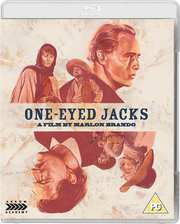





















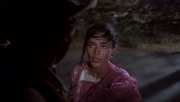







































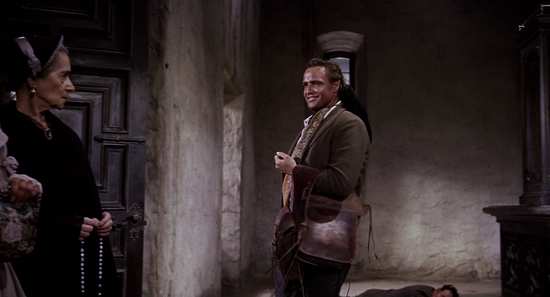
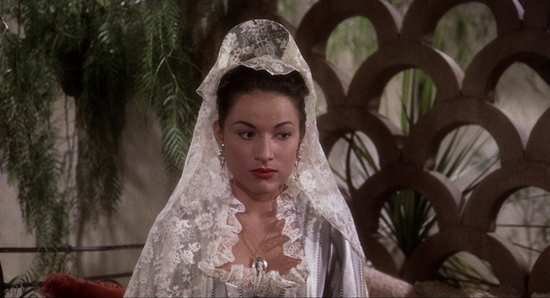
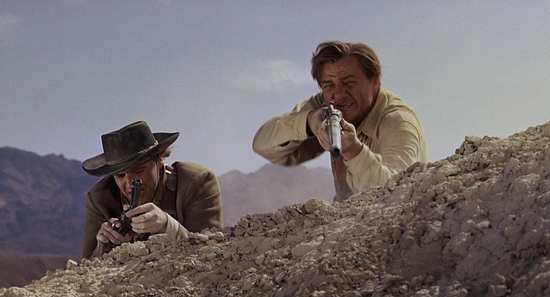
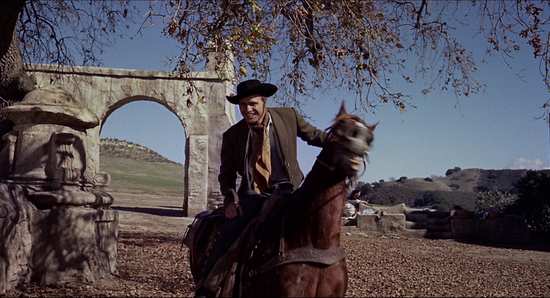
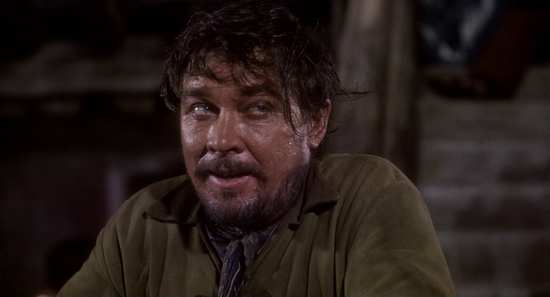
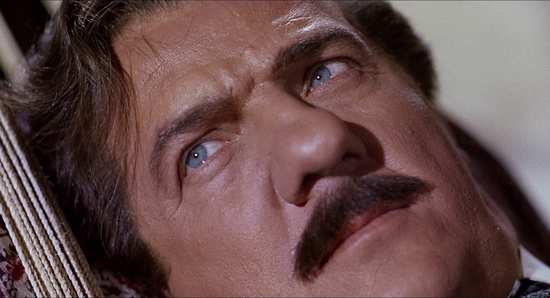
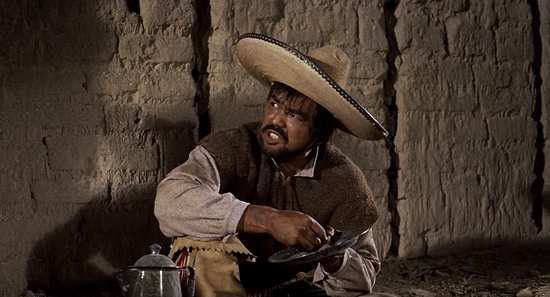
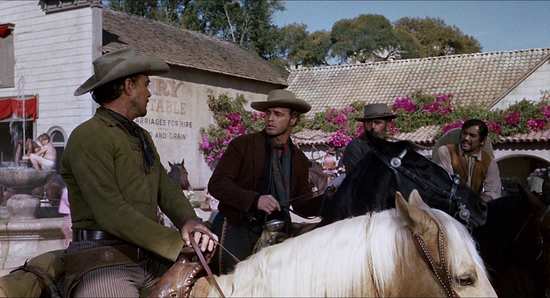
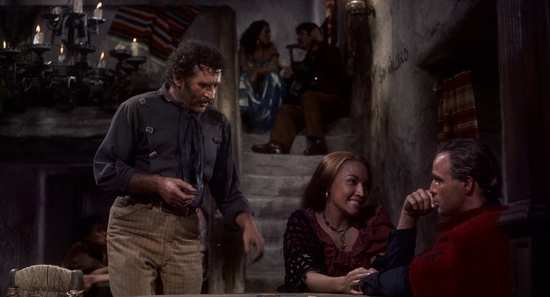
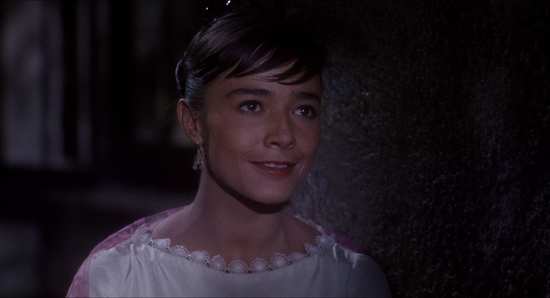
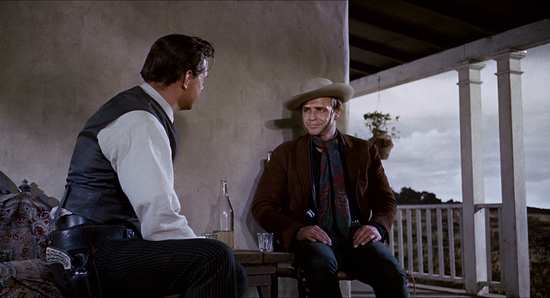
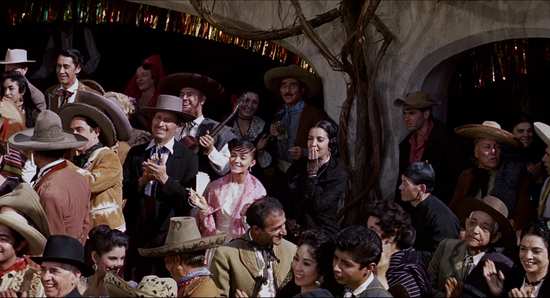
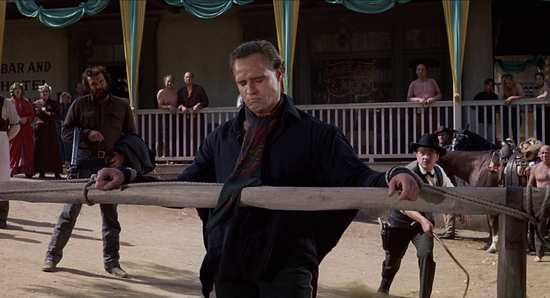
Your Opinions and Comments
Be the first to post a comment!